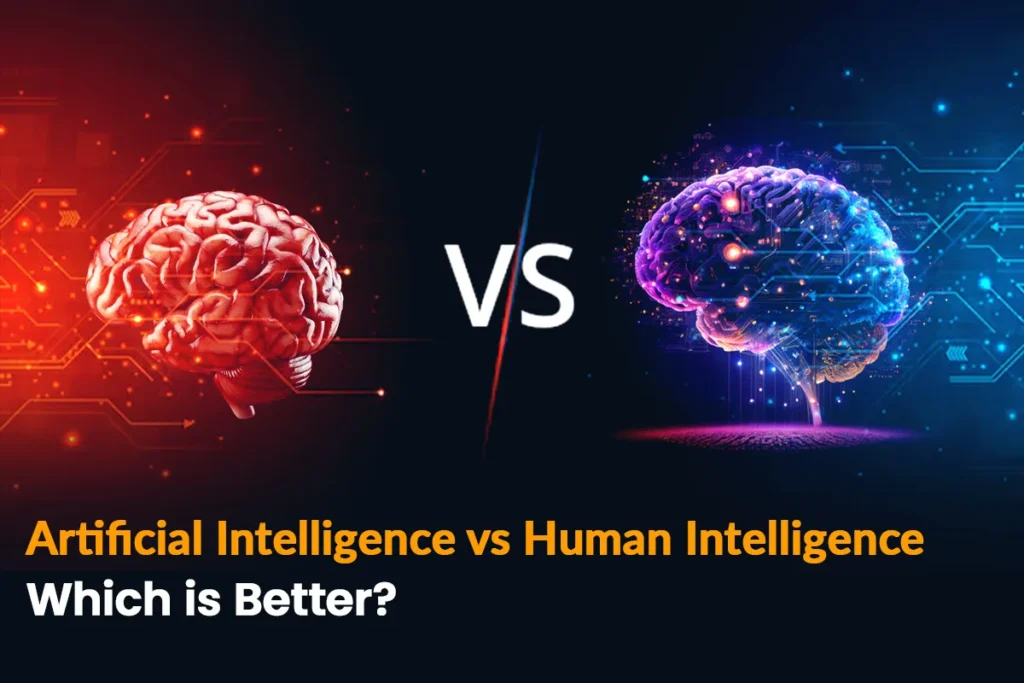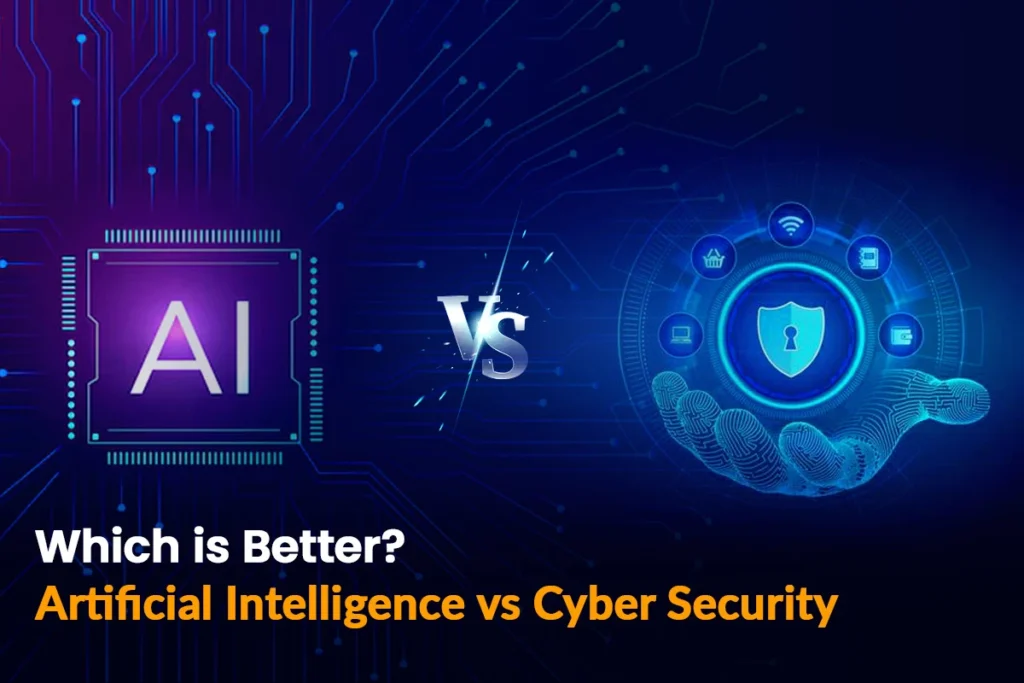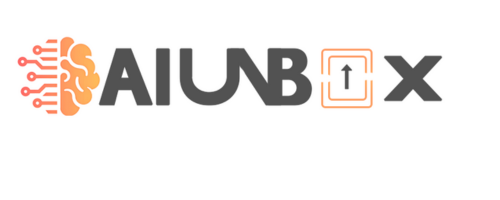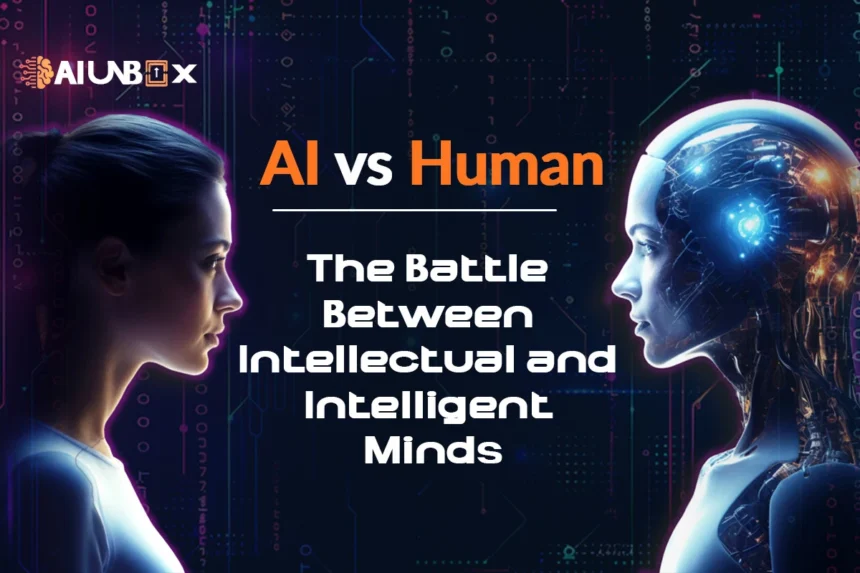Modern technology depends mainly on Artificial Intelligence (AI) since this field often receives comparisons with human talent. The evolving AI technology creates stronger disagreement about the comparison between AI vs Human. The human brain surpasses AI in aspects such as processing massive data quantities swiftly but human beings excel in creative thinking while having emotional responses together with performing ethical assessments.
Which intellectual system provides the higher level of superiority? AI holds the question of whether it can thoroughly supplant essential human mental capacities. This article analyzes fundamental distinctions between artificial intelligence and cyber security systems while highlighting the advantages and drawbacks and answering fundamental queries about “artificial intelligence superiority against cyber security.” The main disadvantages of artificial intelligence remain under examination.
Understanding AI vs Human Intelligence
What Makes AI Intelligent?
The purpose of AI systems is to reproduce human abilities in domains that include learning together with problem-solving and making decisions. The evaluation of patterns by AI systems becomes possible because machine learning algorithms process data for predictions. Artificial Intelligence cannot experience emotions nor generate human creativity nor possess conscious thought whereas it outperforms humans in data processing capabilities.
Key Features of AI:
Quick data processing speed
- Automation of repetitive tasks
- Precision and accuracy in decision-making
- Scalability across industries
The programming constraints of AI systems limit its functions while making it work effectively as a tool instead of replacing human intellectual processes.
What Makes Human Intelligence Unique?
The human brain operates on mechanisms that differ from those of machines. Human mind functions differently than AI since it works with pre-defined data through algorithms but human intelligence bases its activity on experience and emotions and critical thinking and moral judgment. Human mental processes extend into abstract thought and unscheduled adaptation and human beings show capability for self-awareness.
Key Features of Human Intelligence:
- Creativity and innovation
- Emotional intelligence and empathy
- Ethical reasoning and decision-making
- Adaptability in unpredictable scenarios
The primary difference between natural intelligence of humans and artificial intelligence exists in the human capacity to make logical and creative choices that surpass digital reasoning capabilities.
Artificial Intelligence vs Human Intelligence: Which is Better?

The comparison between AI and human intelligence isn’t about determining an outright winner but rather understanding how both can complement each other. Here’s a breakdown of their strengths and weaknesses:
| Feature | Artificial Intelligence (AI) | Human Intelligence |
| Speed & Efficiency | ✅ Faster processing | ❌ Slower, limited memory |
| Creativity & Innovation | ❌ Limited | ✅ Highly creative |
| Emotional Intelligence | ❌ Lacks emotions | ✅ Empathetic & understanding |
| Decision-Making | ✅ Data-driven, logical | ✅ Ethical, intuitive |
| Adaptability | ❌ Struggles with new tasks | ✅ Quickly adapts to change |
AI excels in performing repetitive, data-driven tasks efficiently, whereas human intelligence thrives in creative and emotional reasoning. The real power lies in their collaboration, not competition.
The Artificial Intelligence Debate: Can AI Replace Human Intelligence?
The central question of concern in the artificial intelligence discussion focuses on whether AI systems could replace all abilities of human intelligence. AI gains significant advancements in recent times but cannot replicate three essential human capabilities: emotional understanding and moral understanding with abstract thinking abilities.
The ability of artificial intelligence to surpass human data processing and automated tasks does not diminish the qualities that only human beings possess such as intuition, moral reasoning and conscious awareness.
A correct implementation of artificial intelligence systems requires combining them with human operations instead of trying to replace humans completely. Computers excel at processing complex problems and conducting repetitive work so organizations can become more productive but humans must remain the supply of innovative solutions as well as ethical dilemmas and strategic decision frameworks.
Which Is Better—Artificial Intelligence or Cyber Security?
AI functions as a central force to boost cyber security systems while maintaining separate domains from security protection. Artificial intelligence security tools monitor situations in real time to find threats and execute automated security protocols and risk evaluations. Cyber security experts remain indispensable because they handle ethical cases and eliminate AI bias yet take decisions which transcend AI capabilities.

The better approach is to study the combination of AI technology with cyber security systems and the continuing necessity for human supervision.
Exploring Alternatives to Artificial Intelligence
As AI continues to dominate technological advancements, some industries explore alternatives to artificial intelligence. While AI is powerful, it is not the only solution for automation and decision-making. Some alternatives include:
- Human-Centered Computing – Combining AI with human oversight to maintain ethical and emotional intelligence in decision-making.
- Quantum Computing – An emerging technology that may surpass AI in solving complex problems.
- Biological Computing – Using biological systems for data processing, which could be more adaptable than AI.
These alternatives do not replace AI but rather enhance its capabilities in a way that aligns with human intelligence.
Demerits of Artificial Intelligence
Despite its advantages, AI has several drawbacks. Here are some of the major demerits of artificial intelligence:
- Job Displacement – Automation may replace human jobs, leading to unemployment in certain sectors.
- Lack of Creativity & Emotions – AI cannot replicate human creativity, emotional intelligence, or ethical reasoning.
- Bias & Ethical Issues – AI algorithms can inherit biases from their training data, leading to unfair decisions.
- Dependence on Data – AI requires vast amounts of data to function accurately, making it vulnerable to data breaches and manipulation.
- High Costs – Developing and maintaining AI systems is expensive, making it inaccessible for some businesses.
While AI is a powerful tool, it cannot function independently without human oversight, reinforcing the need for a balanced AI-human collaboration.
Conclusion: The Future of AI vs Human Intelligence
It is no longer about AI versus human, but rather how to make both cross paths for the better. AI is a wonderful tool for efficiency and automation, while human intelligence is known for its creativity, ethics, and adaptability. Going forward into the future means integrating AI so that our own systems of decision-making and values remain untouched.
As AI takes giant strides in today’s world, one question remains to be asked: Will AI be able to replace human intelligence? The answer is No, not at least fully. A limited focus on using AI for a number of tasks avoids one central point: the unique characteristics of the human brain will remain impossible for machines to replicate—creativity, emotions, and moral judgments. The bottom line is embracing AI as a partner to human intelligence instead of competing against it.
Frequently Asked Questions (FAQs)
1. Can AI completely replace human intelligence?
No, AI cannot fully replace human intelligence because it lacks emotional intelligence, ethical reasoning, and creative thinking. AI can enhance efficiency, but human oversight is essential for moral and strategic decision-making.
2. What are the main disadvantages of artificial intelligence?
The demerits of artificial intelligence include job displacement, bias in decision-making, lack of creativity, high costs, and dependence on large datasets for accurate predictions.
3. How does AI compare to natural intelligence?
Natural intelligence vs artificial intelligence is a comparison between human cognitive abilities and machine-based learning. While AI is faster in processing data, human intelligence is superior in adaptability, emotions, and ethical judgment.

